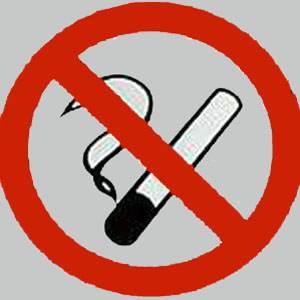Encouraging progress
Jordan has made significant progress in tobacco control, under the leadership of Ministry of Health. Jordan first passed its tobacco control legislation in 1977. As the second country in the region, Jordan endorsed WHO-FCTC in 2004, after which, Jordan underwent rigorous measures to ensure its implementation and compliance, including:
- Amending the Public Health Act and issuing law number (47) banning smoking in public and closed places.
- Developing standardized health warning label to occupy 50% of the pack (instead of the current 30%).
- Implementing taxes on all tobacco products.
- Banning any form of commercial advertising, promotion and marketing.
- Implementing monitoring and evaluation measures to combat illicit trade.
- Providing cessation services, including nicotine replacement therapy, and targeting interventions to integrate cessation services within primary health care.
- Prohibiting sale, promotion and distribution of tobacco products, including water-pipes, to juniors (under the age of 18).
Challenging issues
The FCTC in Jordan faces huge challenges, led by the tobacco industry that is retaining great power to block measures of tobacco control. Existing tobacco control measures lack the required scope and effectiveness. There is an urgent need to re-position tobacco control in the public imagination and in the mind of decision-makers, employers and workers alike; particularly from a human-rights and evidence-based perspectives. The current legislation prohibiting smoking in public places allows for designated smoking areas, as long as appropriate protection for non-smokers is there. Additionally, the existing legislation is not adequately enforced and many enforcement agencies are not aware that they have jurisdiction over the issue. Jordan needs to develop a stronger policy framework for effective implementation of smoke free public places while monitoring the tobacco industry and fostering collaborative mechanisms, where the JTCA can come into play.
Way forward
The FCTC has brought tobacco control to the forefront of Jordan's national health and political agendas. Despite the promising progress that Jordan has witnessed since the ratification of the FCTC, a more comprehensive approach still needs to be adopted if rapid and sustained reduction in tobacco consumption is to be achieved.
Full implementation and enforcement of, and compliance with, the FCTC is vital to decreasing the considerable health and economic burden caused by tobacco in Jordan.
Tobacco use is a major risk factor for noncommunicable diseases, which cause more than a third of the deaths in Jordan, and are increasingly an obstacle to development, threatening the achievement of the Millennium Development Goals (MDGs) in 2015, as confirmed by WHO report on April 2011.
If left unchecked, tobacco use will kill 8 million people a year by 2030, 70% of them in developing countries.
Related links
WHO Framework Convention on Tobacco Control








 On 31 May 2011 Jordan marked the celebration of World No Tobacco Day in a somewhat unique way. For the first time since the WHO Framework Convention on Tobacco Control (FCTC) entred into force over six years ago, Jordan witnessed the launch of Jordan's Tobacco Control Alliance. The Alliance comprises a unique consortium of civil society and nongovernmental bodies committed to scaling up tobacco control advocacy and gaining social momentum.
On 31 May 2011 Jordan marked the celebration of World No Tobacco Day in a somewhat unique way. For the first time since the WHO Framework Convention on Tobacco Control (FCTC) entred into force over six years ago, Jordan witnessed the launch of Jordan's Tobacco Control Alliance. The Alliance comprises a unique consortium of civil society and nongovernmental bodies committed to scaling up tobacco control advocacy and gaining social momentum.